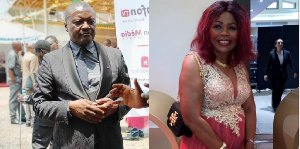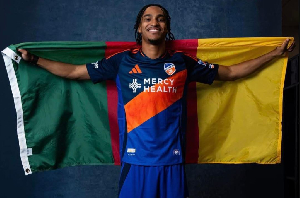Though composed mainly of practicing journalists (Charlies), [the NCC] has been labeled a Trojan horse or anti-freedom brigands (Kouachis) set up against their colleagues. And the contradictory messages after Charlie Hebdo, comfort NCC in its position and attitude.
You may never have another week of ideological and professional contradictions. Last week was. About everyone shifted from their entrenched positions. About everyone disappointed or shocked someone else by standing on a new position than they were known for.
About everyone felt comforted to see others shift to their position. About everyone felt disappointed to see those they thought held their views drifting. Yet again, every cause has its partisans, even its fundamentalists and jihadists. And again, humanity is divided and polarized, and mankind remains in peril because of ideological intolerance.
In the end, it is us journalists who are left the most confused or ridiculed. We are again looking into the crystal ball guessing where our future lies with Freedom of Speech, Social Responsibility, Authoritarianism, Totalitarianism, Developmental Mobilization, Spiral of Silence, Agenda Setting. Are the standards changing so fast? To borrow from a popular Cameroonian maxim: Freedom of expression changes with terrorism.
Wednesday, January 7, the Kouachi brothers, professed Muslim jihadists, left 12 dead in Charlie Hebdo’s newsroom. A Jewish supermarket hold up by another professed jihadist, Amedy Coulibaly left four hostages dead.
The sympathy/solidarity slogan “Je Suis Charlie” (I’m Charlie) went viral on social media as people across the globe, shocked and aggrieved, embraced it instinctively. In newsrooms especially, journalists each saw themselves as potentially Charlies, that is, the victims in the Charlie Hebdo newsroom. “Les choses qui arrivent aux autres…”
In Cameroon, Parfait Siki, Managing Editor of French language Reperes, “glocalized” it in a Facebook post: “The Charlie Hebdo assassinations have to remind us of the risks of freedom of the press in the war against Boko Haram.” In France, Sunday, January 11 was both the climax and anti-climax of “Je suis Charlie”.
A record 50 world leaders joined President Francois Hollande in a solidarity Paris March (not Paris Match magazine), alongside over a million sympathizers. The massive western mobilization, but also the “ridiculous” enthusiastic presence of some African leaders among the predominantly western marchers, began raising questions: why the big deal over mere 12 or even 17 dead when our own Boko Haram razed a whole village with about 2000 dead, its leader swore hell against Cameroon, and a few days later, attacked a military installation in Kolofata?
Some of the questions were ridiculous, including wondering why there had been no similar solidarity march after dozens of people in Mozambique died from a poisoned drink. I would say besides western propaganda and the dominant culture setting the agenda, besides the positive western attitude to protect their own, Charlie Hebdo drew so much attention, first, because we journalists were both victims and story-tellers. “We” were under attack “simply for doing our job”. Our outrage put the Charlie Hebdo shooting high on world news agenda.
Likewise, the drama around the shooting and, especially, the media coverage of the siege on the Kouachis and Coulibally and their successful end beamed around the world, added impact.
After Paris heaved a sigh of relief, the million plus march was also a victory parade. It was equally a statement by one civilization (western) to the rest of the world, especially the Arabo-Muslim civilization and fundamentalists in particular, that the West shall not be cowed by a few extremist bullets!
Yet also, must it be said that we only have ourselves to blame for undermining ourselves and our own, and should not blame others for upgrading themselves and their own. But that is beside the point. The resounding Paris success left other civilizations thinking and suddenly, “Je suis Charlie” began to lose its universal charm.
The initial grief and sympathy passed, many colleagues have criticized Charlie Hebdo for its “excesses”. The co-founder of the paper frowned at the paper’s Editor for putting his journalists’ lives in peril by his choice of provocative caricatures.
“I’m Charlie BUT…” began to surface. Even “I’m NOT Charlie” was heard. So who is Charlie and who is not? Or who is both Charlie and Kouachi (or Coulibally)? There are many, and these include some very improbable ones. Maybe even us.
(Well, unsurprisingly, Franco-Cameroonian humorist, Dieudonne posted on Facebook, “I’m Charlie Coulibally” and was arrested for it. Wasn’t his right to free expression violated there? Just asking.)
First among Charlie Kouachis is Francois Hollande. In his “Je suis Charlie” speech, he passionately evoked right to free expression. But rewind to 2013-2014 when Closer magazine published true scandalous pictures of Hollande and his mistress, not provocative depictions of Mohamed. Remember the president’s wrath over the paper’s “infringement on my privacy”. Closer was later charged to pay damages to Hollande’s alleged mistress.
Along with Hollande, western “free world” governments have defended journalists’ unfettered right to freedom of expression; the same turncoat governments now shedding their age-long libertarian press models and embracing newfound restrictive measures. They seem to envy regimes with authoritarian and totalitarian press models. George Bush brought the Patriot Acts after 9/11. France began contemplating its own after Charlie Hebdo. Cameroon passed its Anti-Terrorism Law last November.
Our National Communication Council is also Charlie Kouachi – a typical one. Even before Charlie Hebdo, NCC has been looked upon as a contradiction. Though composed mainly of practicing journalists (Charlies), it has been labeled a Trojan horse or anti-freedom brigands (Kouachis) set up against their colleagues. And the contradictory messages after Charlie Hebdo, comfort NCC in its position and attitude. With good reason though, one must concede.
Especially because Vision4 TV, Charlie Kouachi of sorts, and recent NCC “victim” added its voice to the Charlie Kouachi contradiction. Its mid-morning talk show, Tour d’Horizon with Les Dinosours (Ernest Obama, Martial Owona, Francis Bonga and Parfait Ayissi), said Charlie Hebdo went overboard.
Without acknowledging or thinking they were conceding anything to NCC, they spoke like NCC when Ernest Obama said freedom of expression cannot be unlimited and does not justify disregard for another. Some of us here and many journalists around the world militating for unrestricted freedom of the press, spoke like Vision4 this past week, especially after our eyes were opened to what looked like a western ploy through “Je suis Charlie” to fool the rest of the world and undermine us.
My take on western government’s press freedom contradictions must leave someone at NCC rolling their eyes in bewilderment. Na Bayen dis? Yes, na me oga! Read me again. I believe in my stance, I tolerate yours and understand theirs. I stand for self-regulation or at the worst, co-regulation. I’m against government regulation or disguised censorship, especially one that cannot even veil its teeth. I know there are quacks in our midst.
I know we harbour militants with hidden agendas. I know that even in good faith, we may err. So a peer forum for guidance and correction is necessary. But I strongly believe and have always said so, that media regulation (self-regulation preferably) is not all about sanctions. It is also about mediation, arbitration, pedagogy and naming and shaming in periodic Doing Journalism reports.
Opinions of Friday, 23 January 2015
Auteur: Franklin Sone Bayen















